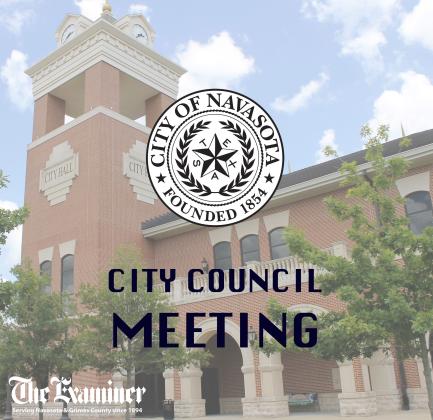Municipal court, more than traffic court! Part 2 of 3
At the Oct. 23 Navasota City Council Meeting, Mayor Bert Miller issued a proclamation recognizing Nov. 6-10 as Municipal Court Week. The Proclamation pointed out that “more people come in contact with municipal courts than all other Texas courts combined and public impression of the Texas judicial system is largely dependent upon the public’s experience in municipal court.”
In this three-part series, the Examiner takes a look at the structure, jurisdictional responsibilities and challenges prompted by unlicensed drivers, lack of parental responsibility and juvenile crime as well as the officers of the court who keep the wheels of justice turning.
Municipal Court is often referred to as ‘traffic court’ but its jurisdiction goes far beyond speeding tickets. It has jurisdiction over violations of city ordinances and over Class C misdemeanor criminal cases where the punishment upon conviction is by fine only.
In the case of Navasota Municipal Judge Pat Gruner, she has concurrent jurisdiction within the city limits with Pct. 3 Justice of the Peace Mark Laughlin. Concurrent jurisdiction is when two or more courts have the power to hear a case. It occurs most notably in federal and state courts and can lead to ‘forum shopping’ where parties try to have their case heard in the court they think will be the most favorable.
Municipal Judges may preside at jail magistrations reviewing the charges to determine whether or not there is probable cause for the arrest and detention of the defendant, bench and jury trials, juvenile magistration warnings as well as issue emergency protective orders, community service orders and they may review and/or issue search, inspection, seizure and arrest warrants.
They also preside over show-cause hearings and hearings for financial ability, mental health, dangerous dogs, code enforcement and stolen property.
Though a Municipal Judge can’t sentence someone to jail for a Class C crime, a defendant’s behavior can put them there.
Gruner said, “If defendants ignore their tickets and follow-up letters for speeding, running stop signs or any other infraction of the law, a warrant is issued for their arrest. Failure- to-appear and warrant fees may be added and they are taken to jail.”
Jail runs
The work schedule of a Municipal Judge is anything but the conventional 8 a.m.-5 p.m. job. They’re on-call 24 hours a day, seven days a week for jail, juvenile magistration and signing warrants.
Gruner said, “The judge is usually required to go to the Grimes County jail in Anderson 2-3 times per week. At the jail, after completing the required paperwork, the complaint is read to the accused, they are read their rights, then asked how they plead and their sentence is determined. The current staff at the Grimes County jail does an excellent job!”
Indigency cases
According to Gruner, the Court sees a lot of indigency cases but it’s the judge’s job to determine if those claiming indigency are truly needy. Those who claim they don’t have the money to pay their fines are required to complete a financial ability form and provide supporting documentation. Upon review, a determination is made between a payment plan and community service.
Gruner said, “Many just do not want to pay. I explain a fine is a penalty that is not supposed to fit in their budget or paid when it’s convenient. It’s meant to ‘pinch’ so they will not repeat their offense.”
Gruner added that she has taken military service into consideration as well as Peace Corp service or past alcohol and drug rehabilitation participation.
Next week: Part three – Municipal court, the growing challenges.

